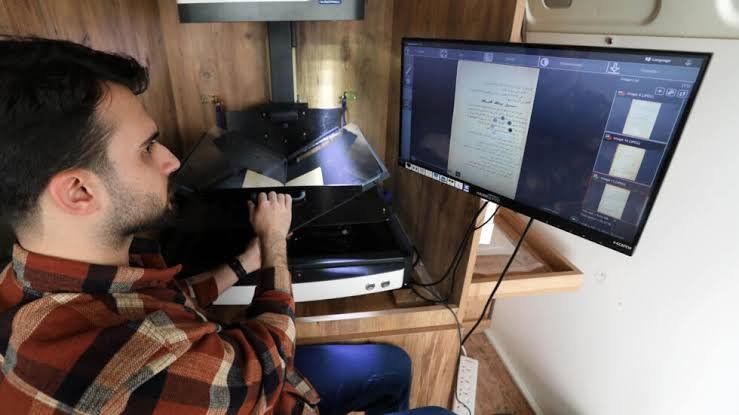In a concerted effort to preserve the rich cultural heritage of the Kurdish people, Rebin Pishtiwan and his team embark on a mission to digitize historic Kurdish books, combating the looming threat of their disappearance.
The Kurds, recognized as the largest stateless ethnic group globally, comprising between 25 to 35 million individuals mainly dispersed across Iraq, Iran, Syria, and Turkey, have long faced persecution, notably during the regime of the late dictator Saddam Hussein, resulting in the loss or destruction of significant historical documents.
Operating from the northern autonomous Kurdistan region of Iraq, Pishtiwan expresses the sacred nature of their task, aiming to safeguard rare and vulnerable texts from vanishing into obscurity. Following decades of marginalization, particularly prior to the Kurds’ attainment of greater autonomy post-Saddam Hussein’s downfall in 2003, efforts to preserve their cultural legacy have gained momentum. Despite challenges such as scattered documents and limited resources, Pishtiwan and his colleagues traverse Kurdish towns weekly in pursuit of invaluable literary treasures spanning centuries and dialects.
At the heart of their endeavor lies Dohuk’s public library, where the archiving team meticulously scours wooden bookshelves for hidden gems. Assisted by the library’s manager, they amass over 35 books encompassing poetry, politics, language, and history, written in various Kurdish dialects alongside Arabic. From ancient folk tales to religious manuscripts, each fragile page holds profound significance, beckoning preservation for future generations.
Equipped with state-of-the-art scanning devices, Pishtiwan’s team meticulously begins the arduous process of digitization, laying the groundwork for the establishment of an online archive. Spearheaded by the Kurdistan Center for Arts and Culture (KCAC), the initiative, launched in July, aspires to grant free access to these invaluable texts come April, fostering a deeper understanding of Kurdish heritage among readers and researchers alike. With over 950 items archived to date, including manuscripts dating back to the 1800s, the project aims to democratize access to primary sources, epitomizing a collective endeavor to enrich Kurdish cultural identity.
However, challenges persist, as evidenced by the reluctance of some document owners to grant immediate digitization permissions. Despite this hurdle, the digitization initiative offers a lifeline for texts long out of print, ensuring their preservation in an ever-evolving digital landscape.
For individuals like Hana Kaki Hirane, entrusted with safeguarding centuries-old manuscripts, the imminent launch of the KCAC website heralds a new era of accessibility, beckoning readers to rediscover and celebrate Kurdish literary treasures. As the countdown to April begins, the anticipation mounts, signaling a pivotal moment in the ongoing narrative of cultural preservation and resilience.

